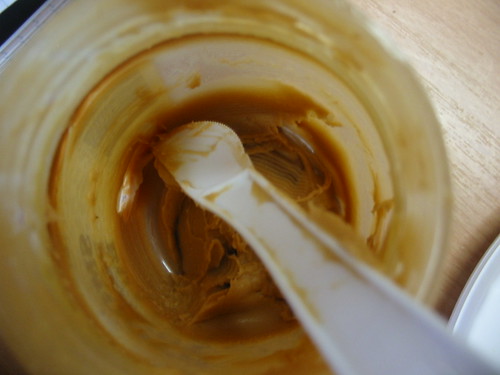Peanuts are a whole food – they are the edible seeds of a plant and are technically a legume. These seeds contain nutrients that provide energy for the growth and development of the young peanut plant. As such, peanuts are a rich source of protein, fiber and calories from fat. And the nutritional good news continues, since the type of fat in peanuts is liquid and they are high in antioxidants and omega-3 fatty acids that help to protect against heart disease.

The trouble begins when we want our peanuts in the wildly popular spreadable form known as peanut butter. It seems as if manufacturers think we need our peanut butter to not only be creamy, but also sweet and salty. I wonder where manufacturers get these ideas from? The unhealthy end result is that the heart-healthy liquid oil that is already in peanuts gets chemically hydrogenated to be more solid or saturated at room temperature or a saturated fat such as palm or palm kernel oil is added to make it creamy. Remember that saturated fats are NOT heart healthy. On top of that, two ingredients are added that we really don’t need to eat–sugar and salt. We know that Americans are already eating too much sugar and too much salt: we get enough!
Avoid peanut butters that have any of these words in the ingredient list:
- Corn syrup
- High fructose corn syrup
- Honey
- Hydrogenated
- Molasses
- Palm
- Palm kernel oil
- Palm oil
- Partially hydrogenated
- Salt
- Sugar
The BEST, most nutritious, three star Guiding Stars peanut butter is made from only ground peanuts–there will be a single ingredient listed and it will simply state the word peanuts. The trick with this is that the liquid oil from the ground peanuts separates and rises to the top. When you use this peanut butter, you will just need to stir it to mix in the oil. Is that too much work to do so you can enjoy this nutty spread without guilt? I don’t think so!